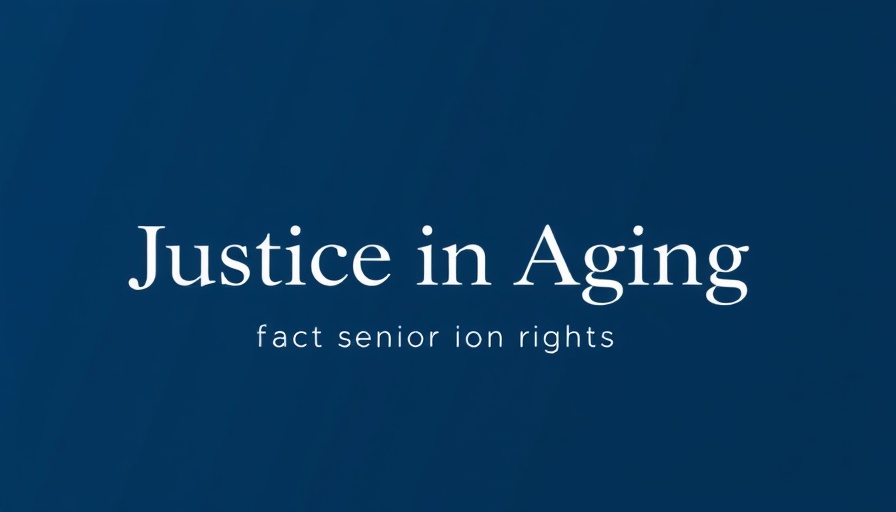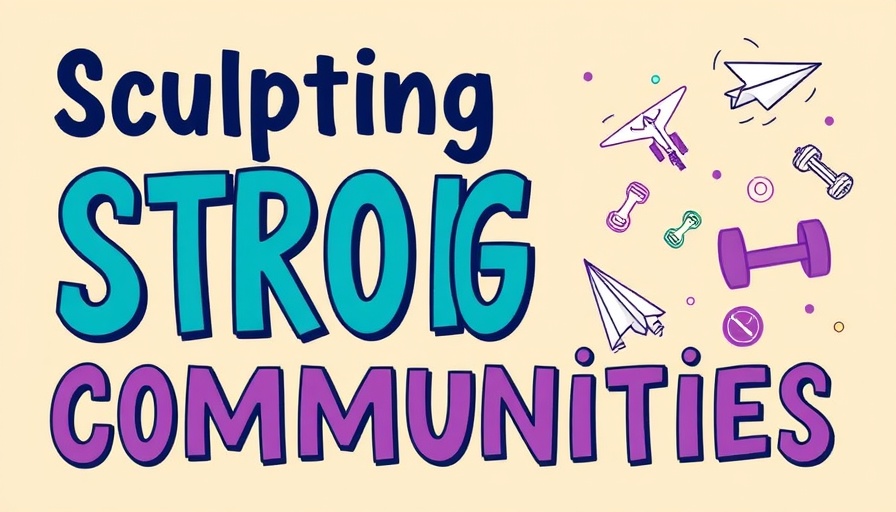
What D.C. Decisions Mean for Seniors
The recent developments in Washington hold significant implications for older adults, particularly concerning housing and healthcare. The potential elimination of funding for the Fair Housing Initiatives Program (FHIP) poses immediate risks to fair housing advocacy. Older adults, who often face unique challenges regarding housing discrimination, could find themselves lacking support systems that provide education and legal representation. A public outcry from nonprofits and citizens alike is crucial to preserving these essential funds.
Elizabeth's Story: A Reality Check
To illustrate the real-world consequences of these policy changes, let’s consider the case of Elizabeth, a 72-year-old woman living alone. For years, she faced discriminatory practices when searching for adequate housing options that cater to her needs. With FHIP support, Elizabeth was able to secure the assistance she needed to fight against discrimination and successfully settle in a community that respects her rights. Should FHIP funding be cut, countless seniors like Elizabeth may struggle to find and maintain safe, supportive housing.
The Privacy Conundrum: Medicaid Under Threat
A shocking decision regarding Medicaid could also affect millions, as the administration prepares to share the personal data of over 79 million enrollees with ICE. The implications of such data sharing go beyond just privacy concerns; they touch upon the fundamental rights of all individuals enrolled in Medicaid, including U.S. citizens. This move raises questions about how we protect our elders, regardless of their immigration status, highlighting a growing trend towards weaponizing essential services against vulnerable populations.
Changing Definitions: HHS Reinterprets Public Benefits
The reinterpretation of what constitutes a “federal public benefit” under the PRWORA adds yet another layer of complexity, as many lawfully residing immigrants could be excluded from receiving crucial support. This could have ramifications for access to healthcare and social services that many seniors depend on. Under these revised definitions, an increasing number of older immigrants may find themselves without the support systems they require, risking their health and well-being.
The Broader Implications: What This Means for All
The implications of these policy shifts extend beyond individual experiences. They reflect a broader culture of systemic risks to the rights and wellbeing of older Americans. Collectively, these moves seem aimed at marginalizing those who already face obstacles based on their age or immigration status. Advocates urge seniors and concerned citizens to unite and raise their voices, reminding policymakers that every community member deserves protection and dignity.
What Can We Do?
As citizens, it is our responsibility to advocate for fair housing funding and protect sensitive personal information that could be jeopardized by governmental actions. Effective advocacy begins at the grassroots level: writing to elected officials, signing petitions, and participating in local campaigns aimed at securing resources for our seniors. The time is now to engage with these issues proactively.
 Add Row
Add Row  Add
Add 




Write A Comment